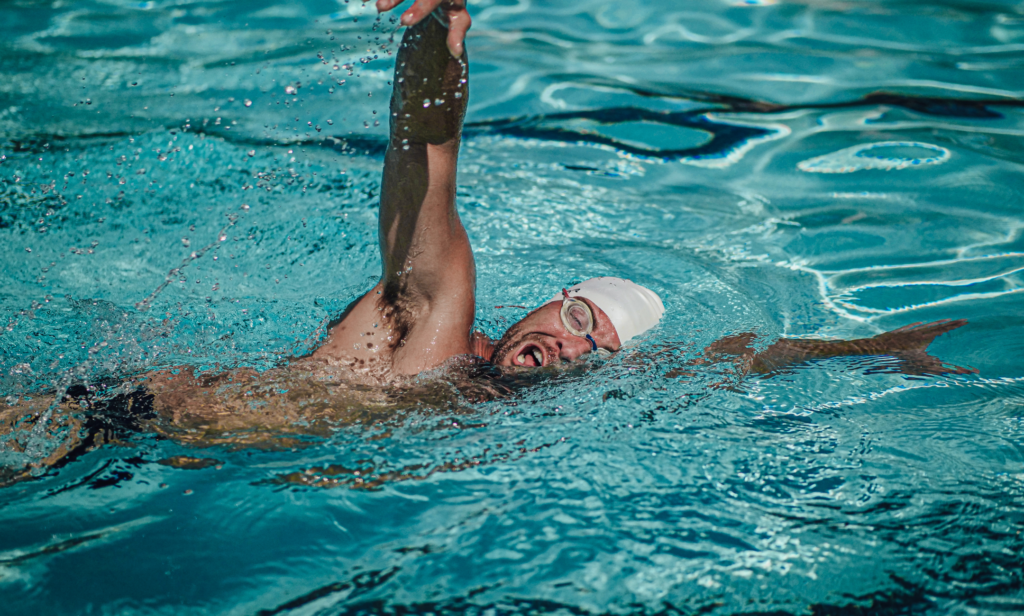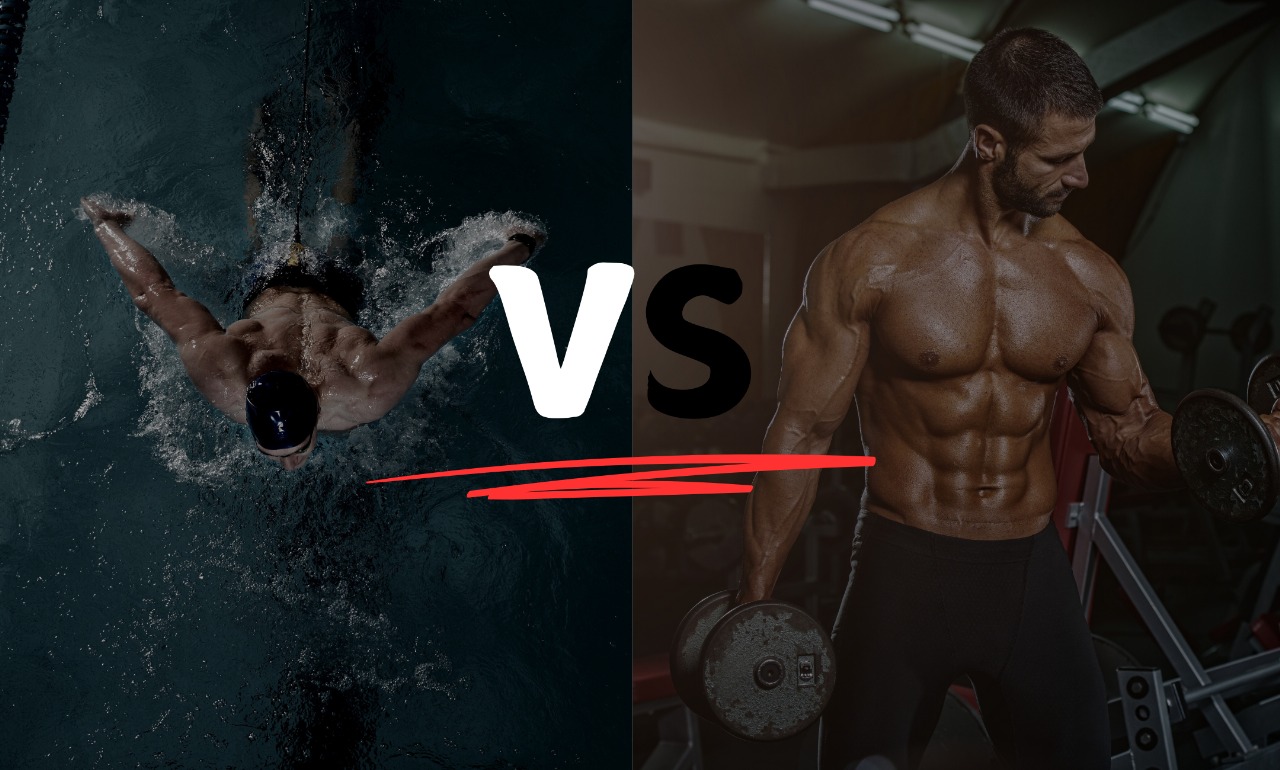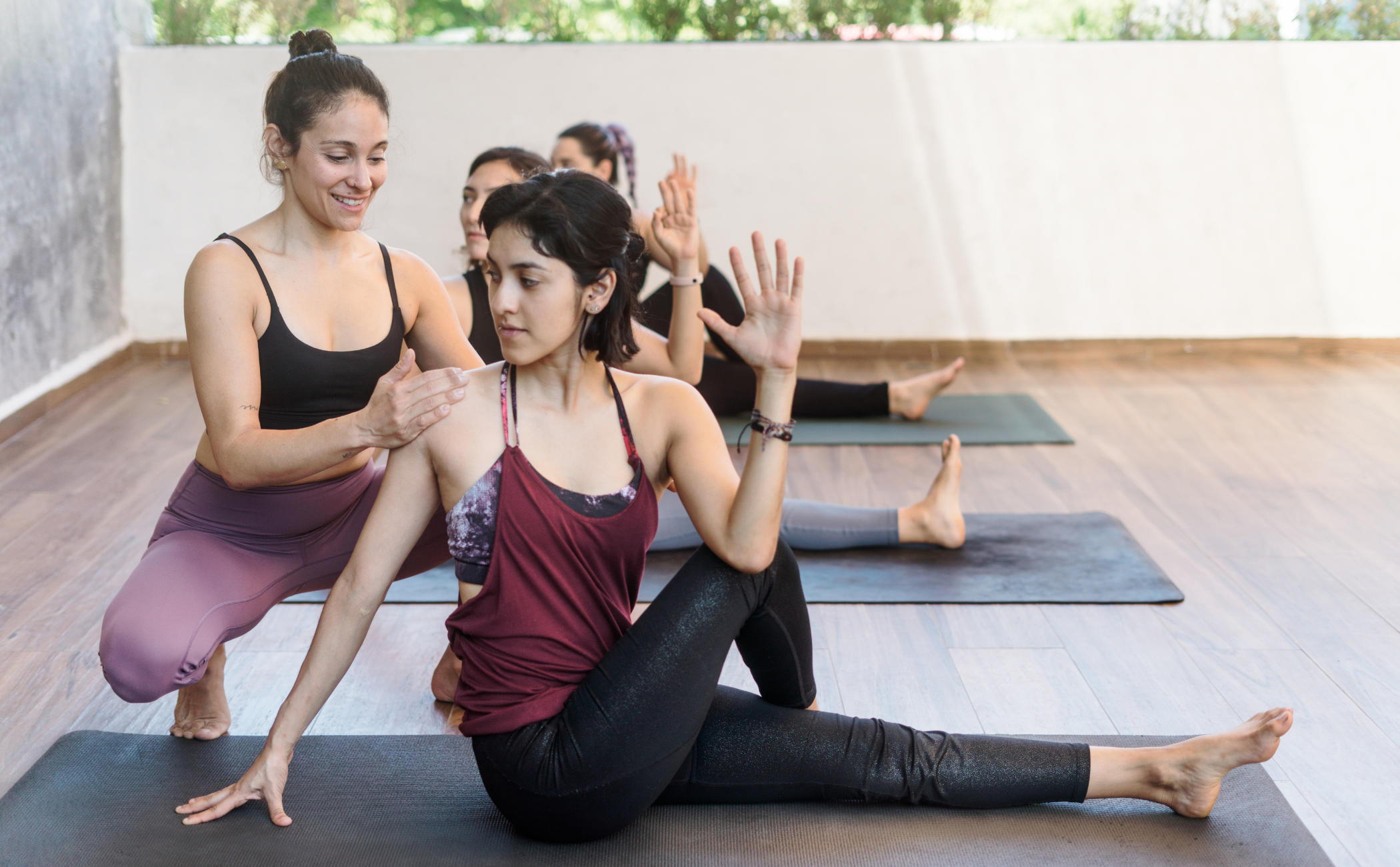When it comes to achieving fitness goals, the debate over swimming vs gym often emerges. Both workouts offer unique health benefits, and the choice ultimately depends on individual preferences, goals, and lifestyle. This article provides an in-depth fitness comparison, evaluating aspects such as calorie burning, muscle building, cardiovascular health, and ease of accessibility.
If you’re unsure whether to hit the pool or head to the gym, read on to uncover which workout suits you better.
The Basics of Swimming and Gym Workouts:
Swimming is an aquatic activity that works your entire body, combining cardio and strength training in a single session. Whether you’re doing freestyle, breaststroke, or backstroke, swimming offers a full-body workout that engages multiple muscle groups.
On the other hand, gym workouts focus on both cardio and resistance training, with a wide range of options like weightlifting, treadmill running, HIIT (High-Intensity Interval Training), and yoga. Gyms are great for tailoring exercises to specific goals, such as weight loss or muscle gain.
Both forms of exercise can help you stay fit, but they cater to different goals and fitness levels.
Benefits of Swimming Workouts:

Full-Body Exercise:
Swimming is one of the few sports that engage almost every muscle in your body. From your arms and legs to your core and back, every stroke works multiple muscle groups in harmony.
Low-Impact Exercise:
For those with joint pain or injuries, swimming is a low-impact exercise that minimizes stress on the joints. The buoyancy of water supports your body weight, reducing strain and allowing smooth movement without discomfort.
Cardiovascular Health:
Swimming is excellent for improving cardiovascular health. It strengthens your heart and lungs, enhances endurance, and improves circulation. Regular swimming sessions can reduce the risk of heart disease and lower blood pressure.
Calorie Burning:
Did you know that swimming burns a significant number of calories? A person weighing around 155 pounds can burn approximately 400-700 calories in an hour of swimming, depending on the stroke and intensity. This makes it an excellent choice for weight loss.
Stress Relief:
Being in the water has a calming effect on the mind, making swimming a great way to relieve stress. The rhythmic breathing and the sensation of water can promote mental relaxation and improve mood.
Versatility and Fun:
From casual laps to competitive racing, swimming offers variety. Additionally, it’s an enjoyable activity for all ages, often feeling more like play than exercise.
Benefits of Gym Workouts:

Muscle Building:
One of the most significant advantages of gym workouts is the ability to build and tone muscles. Strength training using weights or machines isolates specific muscle groups, enabling you to achieve a sculpted physique.
Customizable Routines:
Gyms offer diverse equipment and classes, making it easy to customize your workouts. Whether you’re interested in endurance training, strength training, or improving flexibility, gyms provide the tools for specific goals.
High-Calorie Burn:
Certain gym workouts—such as HIIT, spin classes, or intense cardio sessions—burn more calories than swimming in the same amount of time. This is ideal for those looking to maximize fat loss quickly.
Bone Health:
Unlike swimming, which is low-impact, weight-bearing activities in the gym help improve bone density. This is crucial for reducing the risk of osteoporosis as you age.
Social Interaction:
While swimming tends to be a solo activity, gyms often foster a sense of community. Group classes and interactions with trainers or fellow members can make working out more enjoyable.
Accessibility:
Gyms are available all year round, regardless of weather conditions. Winters, cold rains, or lack of nearby pools won’t interrupt your routine when you’re working out in a gym.
Swimming vs Gym for Specific Fitness Goals:
Weight Loss:

Both swimming and gym workouts can help with weight loss. Swimming is a whole-body exercise that burns a high number of calories while also building endurance. However, gym workouts, particularly HIIT and circuit training, can provide quicker results due to their focus on high-intensity fat burning.
Winner: Tie (depends on preference).
Muscle Building:

While swimming builds endurance and tones muscles, it doesn’t offer the resistance or heavy lifting required for significant muscle growth. For those targeting bulkier muscles, strength training in the gym is a better option.
Winner: Gym.
Low-Impact Activity:

Swimming’s low-impact exercise nature makes it the winner for individuals with injuries, arthritis, or joint pain. Most weight-based gym workouts put pressure on the body, although modifications can be made if needed.
Winner: Swimming.
Cardiovascular Health:

Swimming and gym-based cardio exercises like running or cycling both boost cardiovascular health. However, swimming has the added benefit of improving lung capacity due to controlled breathing during strokes.
Winner: Swimming.
Long-Term Sustainability:

While gym memberships might offer variety, some people find it hard to stick to routines without external motivation. Swimming, being less monotonous for many, can turn into a lifelong habit.
Winner: Swimming.
Overall Versatility:

Gyms provide more workout options than swimming pools, catering to goals from yoga to powerlifting. Pools, while enjoyable, can feel limiting for those who enjoy constant variety.
Winner: Gym.
Additional Factors to Consider:
Accessibility:
Availability of a pool or gym nearby could heavily influence your choice. Swimming often requires specialized facilities, while gyms are more commonly located in both urban and rural areas.
Cost
Swimming workouts usually require access to a pool, which may come with a membership fee. Gym memberships can range in cost depending on the facilities offered, but may be more versatile for the price.
Weather and Seasonality:
Swimming pools—especially outdoor ones—may not be usable during winter or rainy seasons, while gyms are accessible year-round.
Time Efficiency:
If you’re short on time, gym workouts may be more flexible. You can hop onto a machine or lift weights for 30 minutes and leave, while swimming often requires preparation and post-session clean-up.
Age and Fitness Level:
Swimming is ideal for people of all ages as it’s gentler on the body. On the other hand, gyms may intimidate beginners or elderly individuals unfamiliar with equipment.
Striking a Balance Between Swimming and Gym:
The truth is, one doesn’t necessarily have to choose between swimming and the gym. By combining both workouts, you can enjoy the benefits of low-impact exercise alongside intense strength training. A weekly routine that includes swimming for cardio and muscle toning and gym workouts for muscle building and variety could be the ultimate fitness regimen.
For example:
- Monday and Thursday – Gym (Strength Training & Cardio)
- Tuesday and Saturday – Swimming (Endurance & Relaxation)
- Wednesday and Friday – Flexibility Exercises like Yoga or Stretching
This hybrid approach balances strength, endurance, and stress relief while keeping things interesting.
FAQs about Swimming vs Gym Workouts:
Which burns more calories, swimming or gym workouts?
Swimming and gym workouts both burn plenty of calories, but it depends on the intensity and the type of exercise. Swimming can burn 400–700 calories per hour depending on the stroke, while high-intensity gym exercises like HIIT can match or exceed this range.
Is swimming better for joint health?
Yes, swimming is a low-impact exercise that’s easy on the joints, making it ideal for those with joint pain, arthritis, or past injuries. The buoyancy of water supports the body and reduces strain on joints.
Can swimming help with muscle building?
Swimming tones muscles and builds endurance, but it’s not as effective as gym workouts for serious muscle building. Weightlifting and resistance training in the gym target specific muscle groups for growth.
Which is better for cardiovascular health, swimming or the gym?
Both are excellent for cardiovascular health. Swimming improves heart and lung capacity through rhythmic breathing, while gym cardio exercises like running or cycling are equally beneficial. The choice depends on personal preference.
Are gyms more accessible than pools?
Gyms are often more accessible since they are common in urban and rural areas and typically open year-round. Swimming pools, especially outdoor ones, can be limited by availability and weather conditions.
Which exercise is better for beginners?
Swimming is more beginner-friendly because it’s less intimidating, and the water’s buoyancy makes it easier for people of all fitness levels to get started. Gym workouts, while customizable, may require guidance to learn proper techniques.
Can swimming replace gym workouts?
Swimming provides both cardio and strength benefits, so it can replace gym workouts for general fitness. However, it lacks the heavy-resistance training needed for significant muscle building, so combining both is often the best approach.
Is swimming or the gym better for weight loss?
Both are effective for weight loss, but it depends on intensity and duration. Swimming burns a lot of calories and tones the body, while gym workouts like HIIT or weight training can lead to faster fat loss and muscle definition.
Which is better for older adults or those with physical limitations?
Swimming is typically better for older adults and individuals with physical limitations because it’s a low-impact activity that is easier on the joints and reduces the risk of injury.
How do I decide between swimming and the gym?
Consider your fitness goals, preferences, and lifestyle. If you enjoy water-based activities and want a low-impact workout, swimming is ideal. If you prefer strength training, greater workout variety, or year-round accessibility, the gym might suit you better.
Is a combination of swimming and gym workouts effective?
Yes, combining swimming and gym workouts can provide the best of both worlds. You can enjoy the full-body, low-impact benefits of swimming along with the muscle-building and fat-burning aspects of gym exercises.
Which is more cost-effective, swimming or the gym?
It varies. A gym membership typically offers a wider range of equipment and classes, while swimming may involve pool access fees, which could end up costing more depending on location and usage.
Does swimming improve flexibility?
Yes, swimming improves flexibility due to the wide range of motions your arms and legs perform during strokes. However, gym workouts can also enhance flexibility by incorporating yoga or stretching routines.
Which is better for stress relief?
Swimming is often seen as more relaxing and meditative due to the rhythmic breathing and calming water environment. Gym workouts, especially group classes, can also relieve stress but may not have the same soothing effect.
Is swimming suitable for all age groups?
Yes, swimming is suitable for all ages, from children to older adults. Its low-impact nature makes it an excellent choice for lifelong fitness and rehabilitation.
If you find these FAQs helpful, feel free to explore your preferred workout and focus on what aligns best with your health goals and lifestyle!
conclusion:
Both swimming and gym workouts are fantastic ways to stay healthy, but the “better” option boils down to personal preference, fitness goals, and lifestyle. For a gentle, full-body workout that’s easy on the joints, swimming takes the lead. If your goal is to sculpt muscles or burn calories faster, head to the gym. Either way, the most important thing is to find an exercise routine you enjoy and stick with it.





